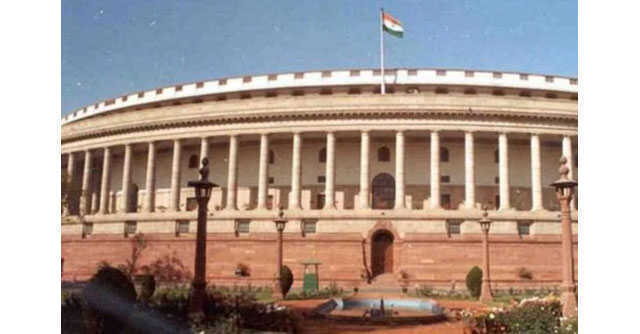
Commerce ministry likely to table Digital Competition Bill in monsoon session of Parliament


The ministry of corporate affairs (MCA) has accepted the suggestion from Parliamentary standing committee on finance to bring a new law to police Big Tech companies and has started work in this area with the idea of tabling a Bill in the monsoon session of Parliament, said a person informed about the discussions in the government.
This will bring a new layer of regulatory framework to ensure fair and competitive practices in the digital economy, in addition to the existing competition law. It seeks to check large digital economy firms like search engines, e-commerce platforms and social networking sites from restraining the emergence and growth of alternative platforms by prescribing a set of do’s and dont’s.
A new Digital Competition Act was proposed by the Parliamentary standing committee on finance led by BJP’s Jayant Sinha last month and previously by the standing committee on commerce led by YSR Congress party leader Vijayasai Reddy. The idea is to have a law similar to the Digital Markets Act that the EU introduced last year given that the traditional anti-trust regulations are not sufficient for the highly dynamic e-marketplace.

While the standing committee on finance expects a Bill to be ready by the budget session, consultations within the government and drafting the Bill could take a bit longer.
“The Digital Competition Bill is a new concept. The standing committee report came just a fortnight ago. The government has to study it and the work has begun. It could take a little longer. Possibly monsoon session,” said the person quoted above, who spoke on condition of anonymity.
The proposed new law will only apply to large digital firms identified based on parameters like core services, market size, number of business users, consumer traffic on their platform and the volume transactions. The EU legislation specifies that a set of core service providers, which also include certain messaging services, video sharing platforms, cloud computing services and operating systems, who also meet market and end user-based threshold will be designated as a digital gate keeper.

Standing committee chairman Jayant Sinha had told Mint in an interview published on 2 January that the proposed law will operate by identifying the small handful of systemically important digital intermediaries that have a dominant role in certain markets. They will be told that they have to play by the rules and file a compliance report annually to make sure that these ex-ante’ or forward-looking rules are followed.
It is expected that there would be a penalty for violation of those rules prohibiting certain practices seen by the committee as anti-competitive. These include e-commerce platforms favouring their own private labels sold on the platform over that of other business users, use of personal data of customers in certain ways to get an unfair edge over other business users of the platform and preventing the business users from steering their customers to offers other than those provided by the platform.
While digital economy, including the fintech segment, is growing fast, the government does not want entrenched players to stifle the emergence of start-ups. Increased adoption of digital services during and after the pandemic and greater usage of internet data and smart phones too are contributing to this sector’s growth. EY said in a report in April last year quoting industry estimates that India’s consumer digital economy is expected to be a $800 billion market in 2030, registering a ten-fold growth from the level seen in 2020.

An email sent to the spokesperson for corporate affairs ministry on Thursday remained unanswered at the time of publishing.
